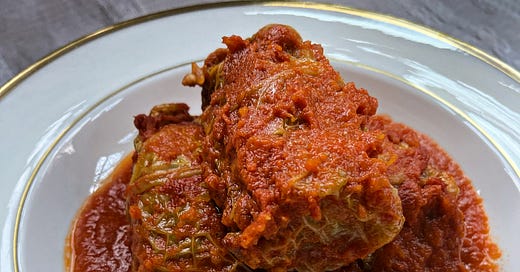I was reminded twice this week of the 13th-century Persian poet Rumi.
The first time was when my husband read me the poem The Guest House. Then today I read an article describing writer Amy Bloom’s memoir, In Love, about her marriage, her husband’s Alzheimer’s diagnosis and his decision to end his life. In it, she talks about a Rumi quote that is on a plaque by a tree planted to honour him.
What is the body? Endurance. What is love? Gratitude. What is hidden in our chests? Laughter. What else? Compassion.
The beauty, the power and the wisdom captured in Rumi’s poetry were a balm to my raw spirit. In a world of disposable tweets, memes, posts, and a thousand other words that evaporate like wet pavement under strong sunlight, his writings seem all the more concrete.
Grounding our broken hearts
Finding ways to make sense of, well, everything, feels more urgent than ever before. As we grapple with an increasing avalanche of things that we cannot control, finding a place of meaning and wisdom can soothe our weary selves. And while it’s true that words can seem like frail reeds in a tornado, they are a small but important reminder that wisdom transcends the ages, that goodness can prevail if only we let it, that the human spirit is unquenchable.
All our hearts are broken, especially this week, as we witness both senseless aggression and a show of force that is cruel. At the same time, we are standing witness to indomitable human spirit, a deeply ingrained sense of justice, resolve. The meeting ground may well lie in words that try to bridge understanding.
I am hopeful. What else can I be, when so many are prepared to give up so much? While the path forward is unclear, the sky dark, and the stars dimmed, words - spoken around a table together - may well be all we have.
Out beyond ideas of wrongdoing
and rightdoing there is a field.
I'll meet you there.
When the soul lies down in that grass
the world is too full to talk about.― Rumi
Stuffed cabbage rolls
adapted from Istria, Paola Bacchia
serves 6
I debated about including a recipe in this week’s newsletter. Somehow it seemed almost flippant, inconsequential in light of everything. But comfort is especially important now, and where better to find comfort than in the kitchen?
Stuffed cabbage rolls find a home in many parts of the world, and in Ukraine, often have pride of place on the table. This version has its roots in Istria, where my mother was from. Be sure to make them ahead as the flavours develop and deepen after two or three days. They can be easily frozen.
Ingredients
1 medium head Savoy cabbage
Sea salt
200 grams ground beef
200 grams ground pork
80 grams short grain rice
1 medium onion, finely chopped
1 garlic clove, finely chopped
1 tablespoon finely chopped parsley
1 teaspoon sweet paprika
1 teaspoon caraway seeds, crushed
3 tablespoons olive oil
1 cup sauerkraut (optional)
2-3 cups of your favourite tomato sauce
Heat oven to 350F.
Remove any damaged leaves from the outside of the cabbage. With a small paring knife carefully remove the core. Bring a large stockpot of salted water to boil and carefully lower the cabbage into the boiling water. Bring to a boil again, reduce the heat, cover and cook for about 15 minutes. Reserve cooking water.
Remove the cabbage onto a cutting board and let cool slightly. Remove the leaves one at a time, trimming the central spine for easier rolling. If the leaves at the centre of the cabbage are not cooked, bring the reserved water to a boil and cook the remaining leaves a few minutes more. Set prepared leaves aside.
In a large bowl, combine the beef, pork, rice, onion, garlic, parsley, paprika, caraway seeds and one scant teaspoon of salt. Mix with your hands until the mixture is homogenous.
Place 2-3 tablespoons of filling in your hands and form a small baton (log shape). Place filling at one end of a cabbage leaf then roll it up, folding the sides in over the filling. The roll should be about 1 1/2 inches thick. Do not roll it up tightly as the rice will expand as it cooks. Repeat with remaining leaves and filling.
In a large Dutch oven or casserole dish, spread one cup of tomato sauce. Place the cabbage rolls in the pan side-by-side. If using sauerkraut, place as much shredded sauerkraut as will fit between the rolls. Pour remaining tomato sauce to cover rolls. Cover tightly with aluminum foil (or a lid if using a Dutch oven). Bake for 2 hours. Check a roll to see if the rice is cooked. If it is not, continue baking, checking after 30 minutes to check doneness.
Serve now or better yet - let cool, refrigerate and reheat the next day or two to let the flavours develop.






❤️❤️❤️